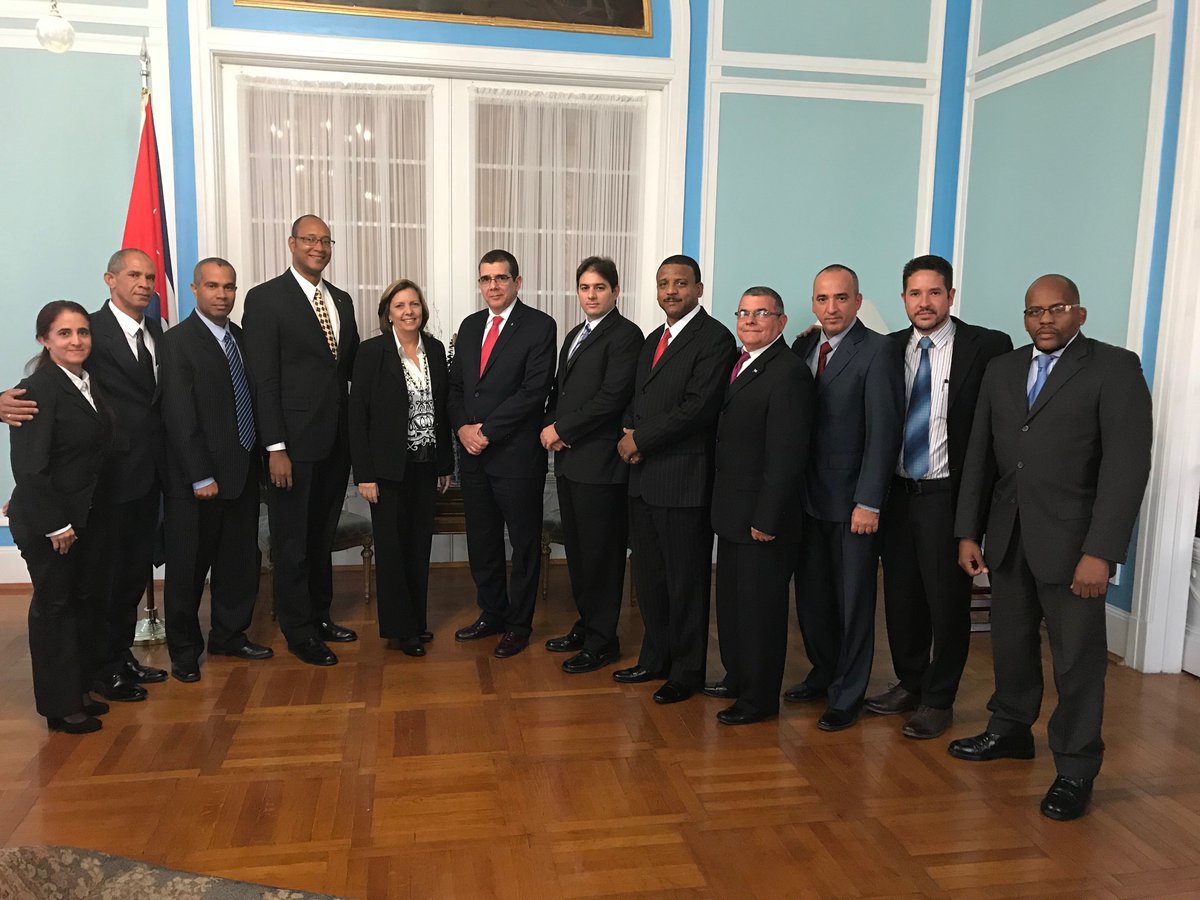United States and Cuba Hold Biannual Migration Talks in Washington, DC
/Media Note
Office of the Spokesperson
Washington, DC
December 11, 2017
The United States and Cuba held the 31st biannual Migration Talks in Washington, DC on Monday, December 11. Deputy Assistant Secretary of State for Western Hemisphere Affairs John Creamer and Deputy Assistant Secretary of State for Consular Affairs Ed Ramotowski led the U.S. delegation. The Cuban delegation was led by Josefina Vidal, the Foreign Ministry’s Director General for U.S. Affairs.
The delegations discussed the significant reduction in irregular migration from Cuba to the United States since the implementation of the January 2017 Joint Statement. Apprehensions of Cuban migrants at U.S. ports of entry decreased by 64 percent from fiscal year 2016 to 2017, and maritime interdictions of Cuban migrants decreased by 71 percent. The United States confirmed it met its annual commitment in fiscal year 2017 to facilitate legal migration by issuing a minimum of 20,000 documents under the Migration Accords to Cubans to immigrate to the United States. The U.S. delegation also raised the need for increased Cuban cooperation in the return of Cubans with final orders of removal from the United States.
A strong migration policy is vital to the United States’ national security. The Migration Talks, which began in 1995, provide a forum for the United States and Cuba to review and coordinate efforts to ensure safe, legal, and orderly migration between Cuba and the United States. The talks were last held in April 2017.
From The Ministry of Foreign Affairs of the Republic of Cuba
Washington, December 11, 2017.- A new round of migration talks was held between Cuban and US delegations, presided over respectively by Josefina Vidal Ferreiro, Director-General of the US Division at the Ministry of Foreign Affairs; and John Creamer, Deputy Assistant Secretary of State for Western Hemisphere Affairs.
The Cuban delegation expressed deep concern over the negative impact that the unilateral, unfounded and politically motivated decisions adopted by the US Government in September and October of 2017 have on migration relations between both countries.
The Cuban delegation once again warned about the negative effect resulting from the suspension of the granting of visas by the US Consulate in Havana. The decision to discontinue the processing of visas applied for by Cubans willing to visit or migrate to that country is seriously hampering family relations and all kinds of exchanges between both peoples.
Likewise, the Cuban delegation reiterated its rejection of the arbitrary expulsion of a considerable group of officials from the Cuban embassy in Washington, which has seriously affected the functioning of the diplomatic mission, particularly the Consulate and the services it offers to Cubans residing in the United States, as well as US citizens who continue to be interested in traveling to our country.
It also noted the counterproductive effect that the decision to cancel the visits of official delegations from the United States to Cuba is having on cooperation in the field of migration, which has led to the postponement of several mutually beneficial exchanges that had been previously scheduled. Should the current situation persist, exchanges in this and other areas will be even more affected.
Regarding the implementation of the migration accords in force, the Cuban representatives urged the US Government to comply with its obligation to grant no less than 20 000 travel documents every year for Cuban citizens willing to migrate to that country. Likewise, the Cuban delegation once again expressed its concern over the enforcement of the Cuban Adjustment Act, which continues to encourage irregular migration and whose abrogation will be crucial to the establishment of normal migration relations between the two countries.
Both delegations agreed to recognize the positive impact that the Joint Statement signed on January 12, 2017 has had, particularly the elimination of the “wet foot/dry foot” policy and the “Cuban Medical Professional Parole Program”, in reducing irregular migration from Cuba to the United States. Likewise, both delegations agreed on the usefulness of the exchange between the Cuban Border Guard and the U.S. Coast Guard Service held in July and the technical meeting on trafficking in persons and migration fraud held in September, which will be followed up on December 12, 2017.
The Cuban delegation reiterated its willingness to continue holding new rounds of migration talks. (Cubaminrex)



